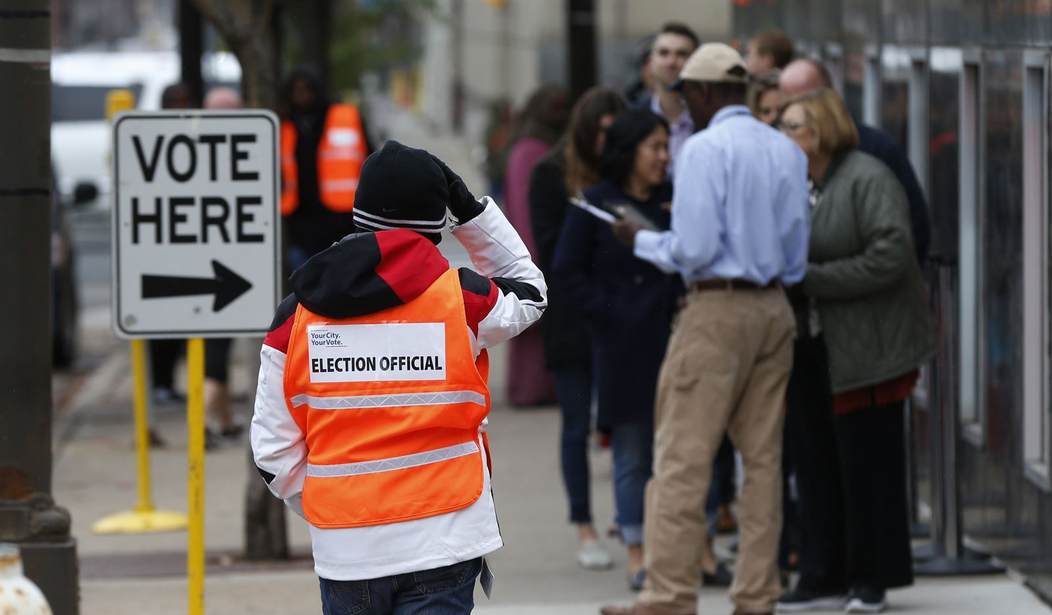The political climate in the United States has been perpetually explosive for what feels like generations. This sentiment was evident as voters went to the polls for the 2018 midterm election. As a result of this, the 2018 midterm had the highest voter turnout since 1914. Despite the passion exhibited by both parties this election, in the shadow looms a serious issue that can affect the very foundation of our democracy. That issue is the growing distrust in our election results.
According to recent surveys, 31% of American voters have “not very much” or “no confidence at all” in our election results. Furthermore, one-third of Americans believe foreign governments had influenced the outcome of the recent midterms. This can be partially attributed to the American media's narrative framing of the 2016 Presidential election as illegitimate, and partially decided by foreign entities.
There are a number of additional factors that also have contributed to the growing lack of faith in the electoral process. It is no secret that foreign governments have attempted on multiple occasions to influence American elections to suit their agenda.
In 1996, China attempted to influence domestic American politics by attempting to assist in the reelection of President Bill Clinton. Dubbed “Chinagate,” the scandal was born out of a United States Department of Justice investigation into fund-raising activities that uncovered evidence of Chinese agents directing contributions from foreign sources to the Democratic National Committee. In addition, just before this year’s midterm election, Facebook discovered that multiple accounts associated with the Russian based Internet Research Agency were engaging in a disinformation campaign.
We have seen more of this weaponizing of social media in order to sway public opinion. In August and October this year, Facebook discovered two more influence campaigns spearheaded by Russia and Iran. Some of the accounts involved in these operations were followed by nearly one million people in the United States and Britain. Twitter also reported accounts from foreign actors that engaged in disinformation campaigns related to the election.
Recommended
At first glance, one might not think that these social media operations would have a minimal effect on the midterm election. However, when put into perspective, the reality is they could have a significant impact.
According to a survey done by the Pew Research Center, 68% of American adults get their news through social media with 43% through Facebook and 12% through Twitter. Browser hijackers, like the Google Redirect Virus, are designed to replace the information and stories seen on leading websites and apps including Google, Twitter, Facebook, and others. This can easily be leveraged to corrupt election results. If even a nominal portion of this demographic is influenced by foreign propaganda, these misinformation campaigns can potentially sway close elections.
These influence campaigns are not the only tools used to manipulate the elections. There have also been multiple reports of hacking attacks to disrupt American votes. These cyber-attacks employ the use of malware such as Trojans and Ransomware to target political campaigns or Denial of Service attacks to state websites.
Even domestically, parties have accused each other of foul play on more than one occasion. Georgia’s secretary of state Brian Kemp has launched an investigation aimed at Georgia’s Democratic Party for attempting to hack the state’s voting infrastructure. According to Kemp, the investigation began after receiving information on a failed attempt to breach the state’s voter registration system and Georgia’s My Voter page.
And of course, there is the State of Florida. Machine recounts, “hanging chads,” Brenda Snipes, thousands of missing votes and the late submission of revised vote tallies have all worked to undermine the perceived legitimacy of election results in one of the most critical swing states in the country.
While all the aforementioned issues affecting our democratic process are serious, the long-term problem may prove to be a lack of trust with election results. Citizens may begin to question the validity of election outcomes and the resulting disillusion and disengagement may have more of a negative influence on our democracy than any foreign power could ever desire.

























Join the conversation as a VIP Member